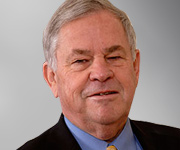LET the Games begin! As the 2012 Olympic Games get underway in London, the spirit of competition and international goodwill that characterises the Olympics offers a rare chance to enjoy and admire excellence in abundance.
It is no surprise that another highly competitive field — health and medical research — holds an event modelled on the Olympic Games. In 2009, Beijing reprised its hosting of the 2008 Olympic Games, with a medical and surgical Olympiad, sponsored by the International Association of Surgeons, Gastroenterologists and Oncologists in collaboration with the Chinese Society of Surgery and the Chinese Medical Association.
Attending doctors competed, using scientific papers as their currency, the best receiving gold medals.
The Greek Embassy in Beijing described how the closing ceremony of the medical Olympics was dedicated to “the Greek culture, its scientific and medical history, and of course, to the renowned Greek physician Hippocrates who was born in the island of Kos in the Aegean in 460 BC and has been considered one of the most outstanding figures in the history of medicine”.
Greece hosted the first international medical Olympiad in 1996 on the island of Kos.
A different style of health-related Olympics was created by American filmmaker Michael Moore, known for his work on a number of satirical documentaries, including Sicko, an exposé of the inequalities and inefficiencies of the American health care system. Before Sicko, Moore created TV Nation: The Health Care Olympics, where Canada, the US and Cuba were matched against each other in three competitive races, involving the care of legs, ankles and feet, respectively.
This Olympic backdrop does raise the question of how much competition is good for health care.
Private enterprise enthusiasts suggest that we need a lot more competition than we currently have to “drive” efficiency. “Drive” is the new best friend of young managers so caution is advised with any rhetoric that uses it.
Competition may push health care towards excellence — and who could dispute that parts of the US health care system are the best in the world for those who can pay. The problem is the huge disparities that occur in quality of care for those who cannot pay.
What we need is a new set of medals for achieving equity, humanity and reasonable efficiency.
In that race Australia would do well, while at the same time winning many prizes for excellence of care much to the amazement of the market fundamentalists.
The irony is, of course, that while “One World One Dream” was the catchphrase for the Beijing Olympics, there is ultimately no way in our unequal world that a universal dream — the fulfilment of the human right to access to basic health care — can persist into wakefulness … not with more than 3 billion people living on less than $2.50 a day.
We must go beyond the Olympics to find the ethical inspiration needed to enable us to address poverty and inequality to achieve that dream.
Gold, indeed.
Professor Stephen Leeder is the director of the Menzies Centre for Health Policy and professor of public health and community medicine at the University of Sydney
Posted 30 July 2012

 more_vert
more_vert
In my view, the never-ending push for improvement works directly counter to the achievement of equity. In my medical lifetime, we have moved from morphine to thrombolysis to on-demand interventional cardiology for the privilged few in the world having a coronary occlusion, while many of the rural poor of the world don’t get aspirin. Global equality will never mean that everyone in the world will get what we expect – a global minimum would be set at a much more basic level. The recent advancements that we insist on result in diminishing returns for our health dollar, but would we – let alone the wider community – be happy to pull back?
Nice piece. How to determine reasonable efficiency is a challenge.